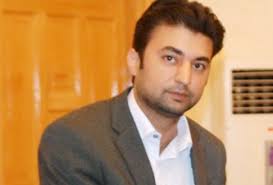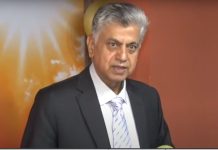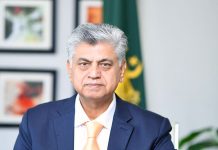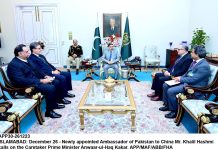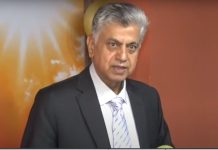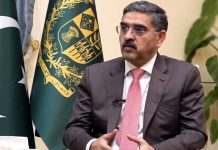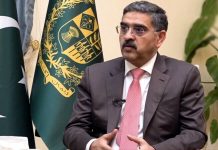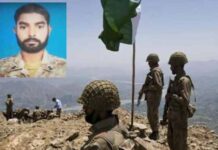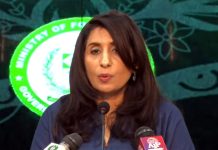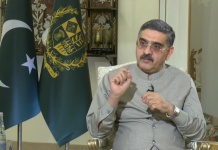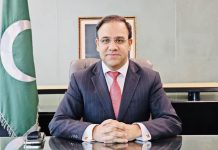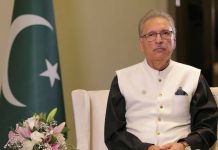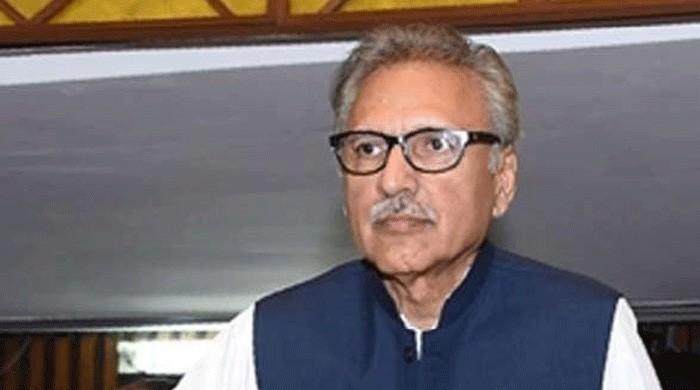
He remarked this in his address to the under-training army officers at the Quetta Command and Staff College, in Islamabad. Pulwama attack was said to be used as a pretext by India to scalate tension. Dr Alvi declared that Pakistan would not tolerate any violation of its territorial integrity and reserved the right to self-defence.
Talking about Pakistan’s wish to enjoy good relations with all its neighbours including India, the president underlined that Pakistan was a peaceful and sovereign country. He lauded the role and sacrifices rendered by armed forces, law enforcement agencies and the civil administration in addressing the challenges of lawlessness and terrorism.
Despite facing many challenges, Pakistan was now heading in the right direction, Dr Alvi noted while adding that the country was now more stable and strong than before and many opportunities were knocking at its door.
Touching upon the China-Pakistan Economic Corridor (CPEC), the president said it had the potential to change the fate of the region for better.
He further asserted that Balochistan would particularly gain from CPEC project as a large number of employment opportunities would be created for its youth.
President Alvi commended the role of Command & Staff College, Quetta in imparting quality and strategic training to officers of the Pak Army as well as those from the allied countries.
He hoped that training received at the premier military institution would prove to be an asset for the trainee officers. Making use of the foundation, the officers were asked to fully utilise their abilities and potential in the service of the motherland.
Meanwhile, President Dr Arif Alvi, on Friday, asked the global community, especially the UN, to direct attention to the issues of Kashmir and Palestine, urging the latter to play its role in their resolution for world peace.
He expressed this view while addressing a two-day international conference on Kashmir history, culture and heritage. Freedom struggles could not be suppressed by the use of brute force, the president added. Talking about the history of Kashmir that spanned over five thousand years, he hailed Islamic art and calligraphy as the beauty of our region. “Art cannot be separated from people,” he affirmed.
Dr Alvi was of the view that the conference would serve as a window to its participants so they could catch a glimpse of the beautiful and peaceful Kashmir, its culture and civilization.
He was pleased with seeing the Muslim Ummah united on the Kashmir dispute. President Alvi remarked that Pakistan sought peace and Prime Minister Imran Khan had repeatedly given the message of peace to India; releasing the Indian pilot as a peace gesture.
He, however, regretted that the Indian side had been taken over by war hysteria after the Pulwama incident. Pakistan had remained the moral victor in the standoff with India, Dr Alvi added.
The country was said to have successfully pushed itself out of extremism but its neighbour was now engulfed by it.
Touching upon the cultural heritage, the president asserted that we must continue to preserve and promote our rich legacy, including languages and musical instruments.
President Azad Kashmir (AJK) Masood Khan also spoke on the occasion and called Azad Kashmir as the most peaceful region of Pakistan. Yet, the Indian occupied Kashmir was in deep pain where women and children were being killed, he regretted.
Khan also pointed out that India had intensified its atrocities in the occupied valley in the wake of the Pulwama incident.
He maintained that shrines and temples in occupied Kashmir were being plundered and destroyed.
Despite Indian atrocities, AJK President noted, Kashmiri people were raising pro-Pakistan slogans in every street and square.
He asked the world to boycott India over its gross human rights violations in the occupied territory.
Azad Kashmir government was said to be actively working to revive and showcase its cultural heritage to the outside world.
For this purpose, exhibitions were also being organized.
Minister for Education, Shafqat Mahmood, pointed out that there remained deep cultural linkages between Pakistan and Kashmir. He said that we were mapping our cultural heritage sites with the aim to preserve and promote them. The message of the Organisation of Islamic Cooperation (OIC) Secretary-General was also read out, on the occasion, which strongly condemned Indian oppression in occupied Kashmir.
The violence in occupied Kashmir was also claimed to be taking a heavy toll on cultural sites. The secretary-general also said that the international community should exert utmost pressure on India for the protection of fundamental and religious rights of Kashmiri people. Durable peace in South Asia could only be achieved by resolving the Kashmir dispute in line with the UN Security Council resolutions.

